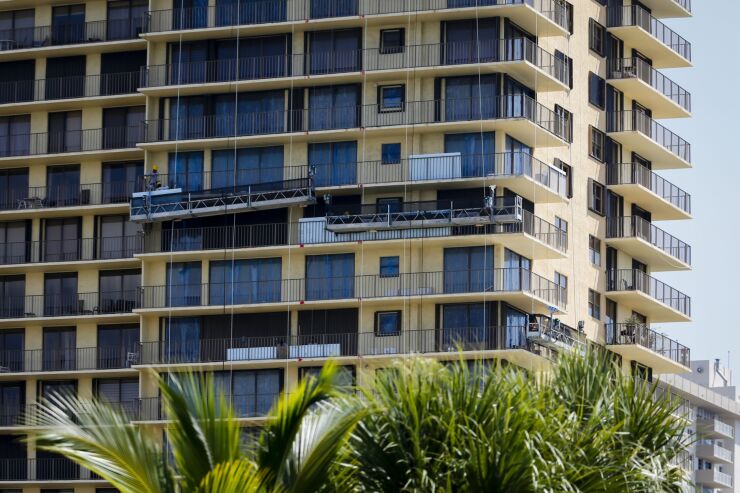Fannie Mae is instituting temporary requirements that bar the purchase of mortgages secured by condominium or cooperative units with significant deferred maintenance and public repair directives related to unsafe conditions.
The requirements will go into effect for whole loans purchased on or after Jan. 1, 2022, and mortgages delivered into securitized pools during that same time period.
The government-sponsored enterprise is instituting this as a stopgap measure while it examines how it can mitigate the growing risk of dangerous property conditions in a market where buildings are starting to deteriorate due to their age. This has been exemplified by some recent public safety incidents in Florida, like the deadly

“With the new temporary requirements in place until further notice, we are also in the process of conducting a deeper analysis of the challenges surrounding
Condo projects Fannie will not purchase as loan collateral include those that require full or partial evacuation for seven days or more to complete repairs. Also barred will be buildings where the evacuation time is unspecified.
Fannie additionally lists three categories of deficiencies, defects, substantial damage or deferred maintenance that would bar a loan from purchase: those that affect safety, soundness, integrity or habitability; those that need substantial repairs or improvements; or those that impair major mechanical or structural building elements such as the roof, plumbing, or electrical system. A failure to obtain an acceptable certificate of occupancy or pass local inspections or recertifications also could disqualify a loan.
Projects will remain ineligible until necessary repairs or authorizations have been completed and documented.
In addition to these measures, Fannie is requiring documentation for properties with special assessments related to the amounts involved and the purpose, even if they’ve been paid in full.
The risks in the condo and co-op market represent one of the challenges the Biden administration faces in its effort to obtain more support for




